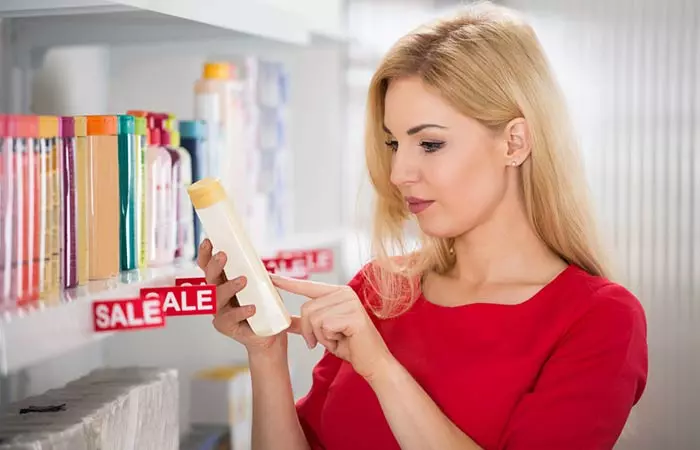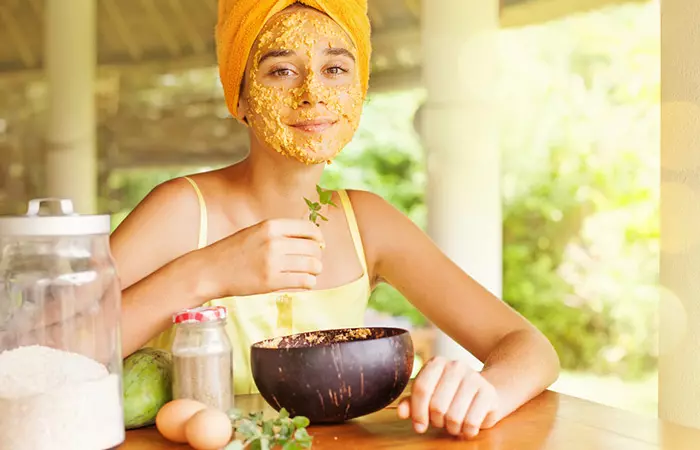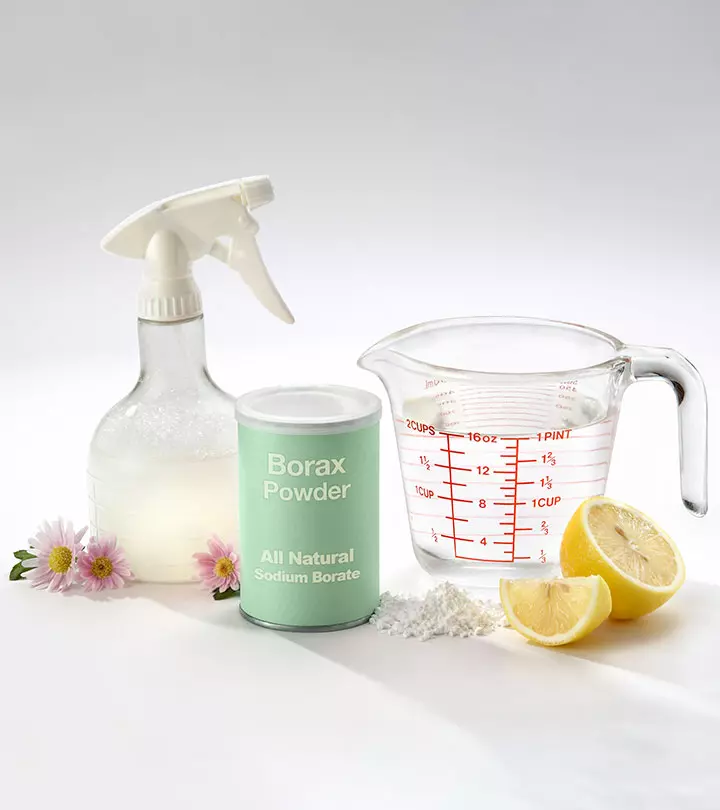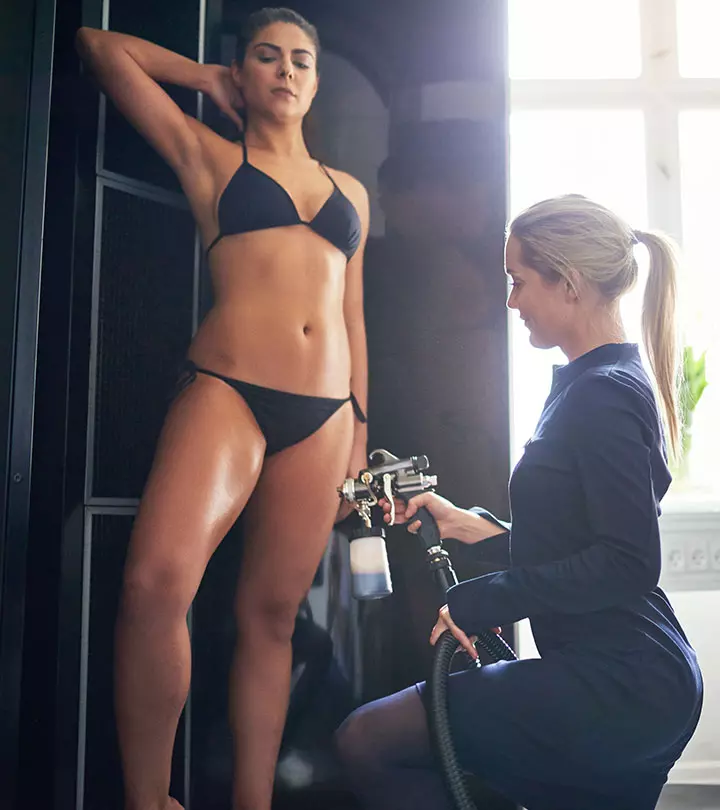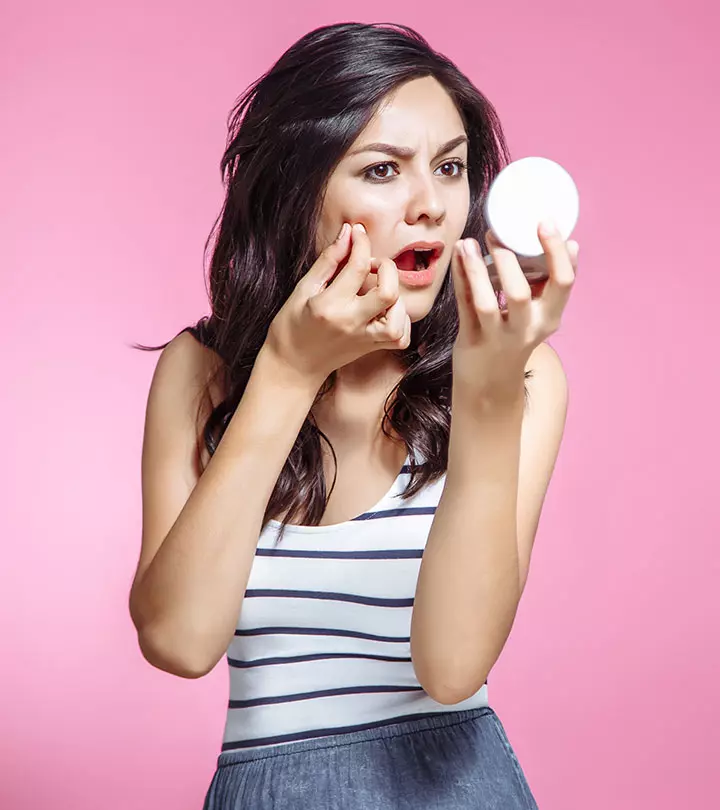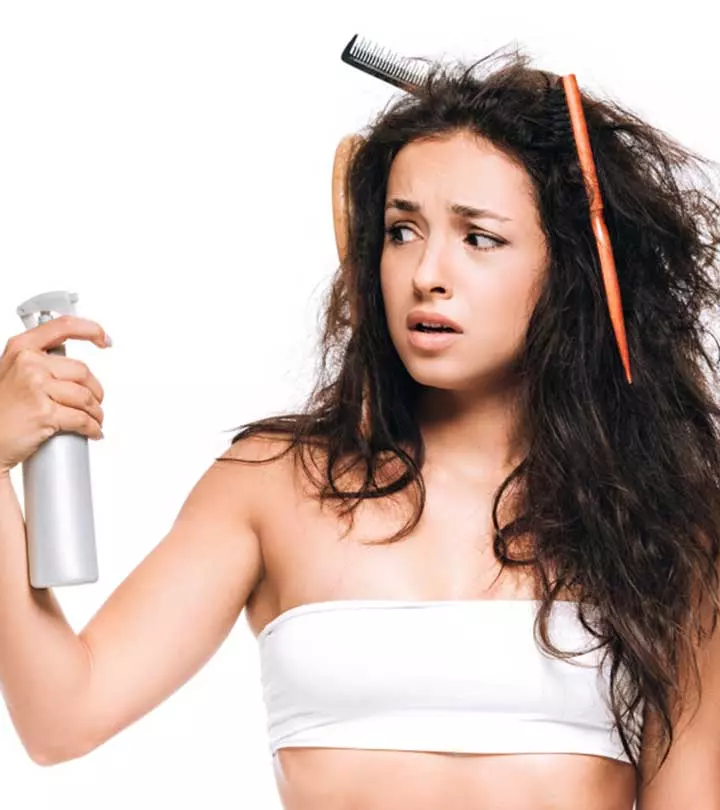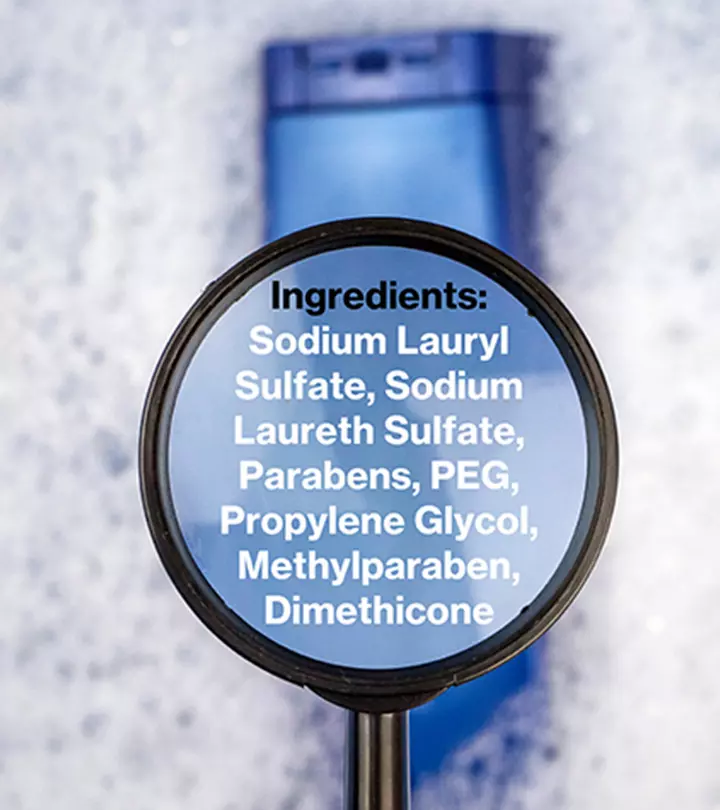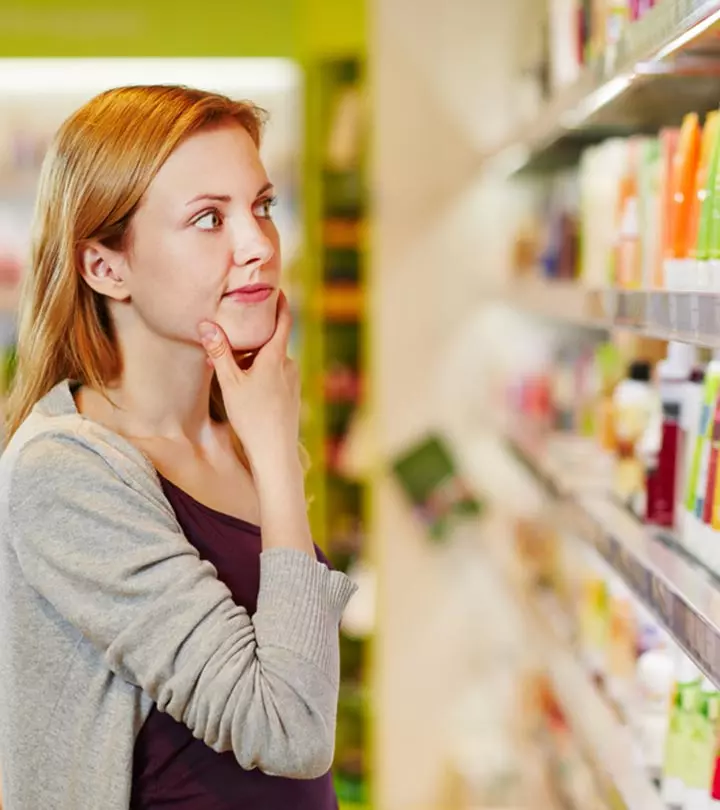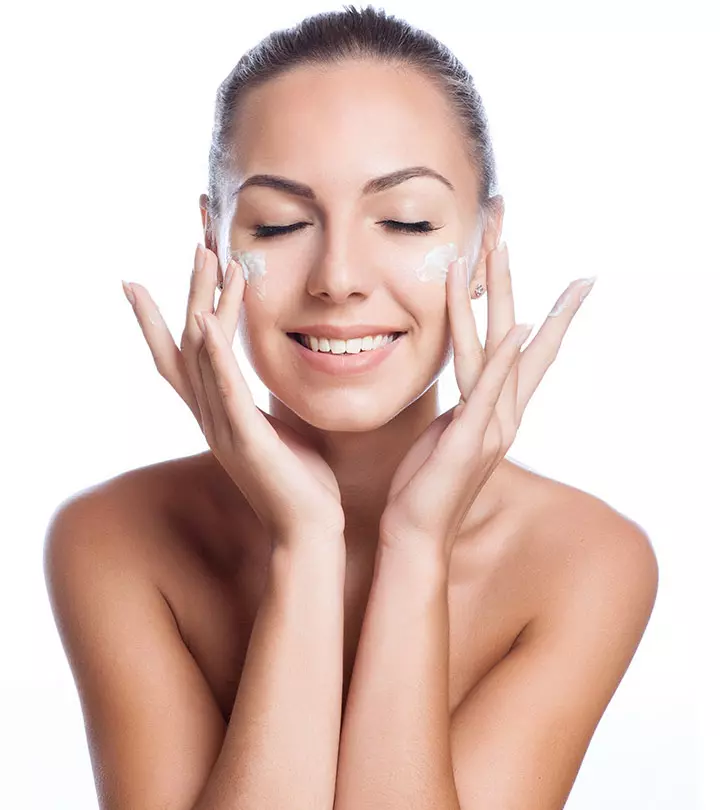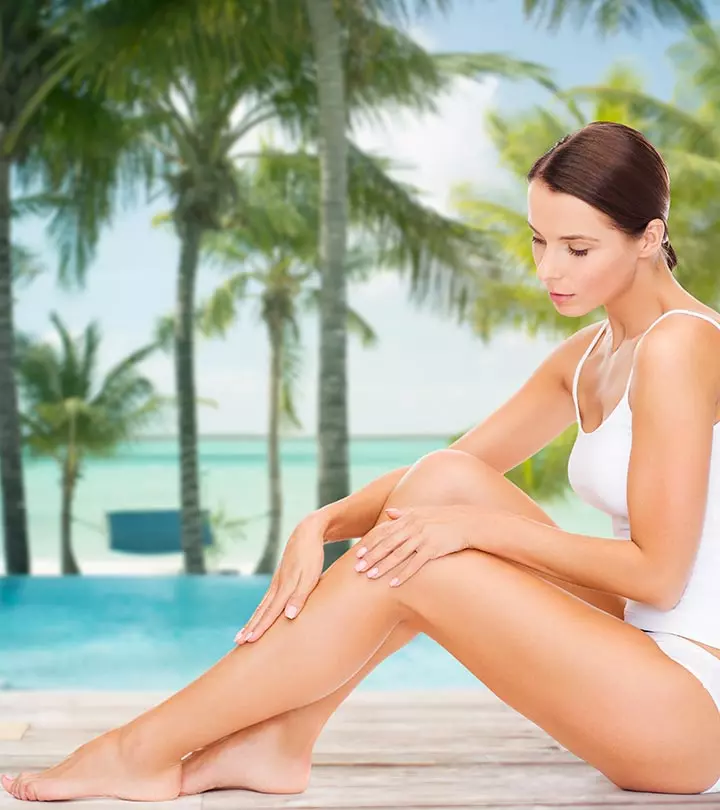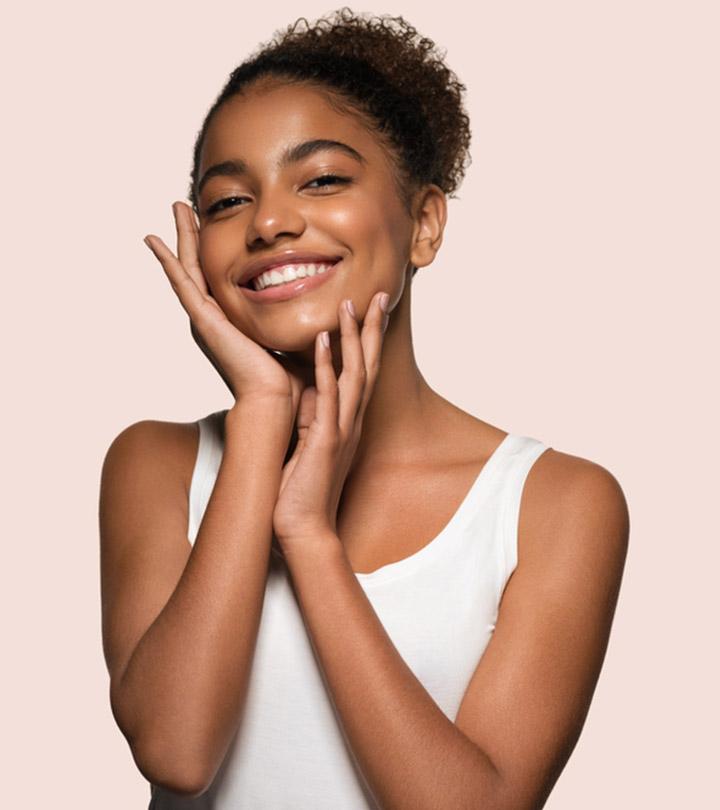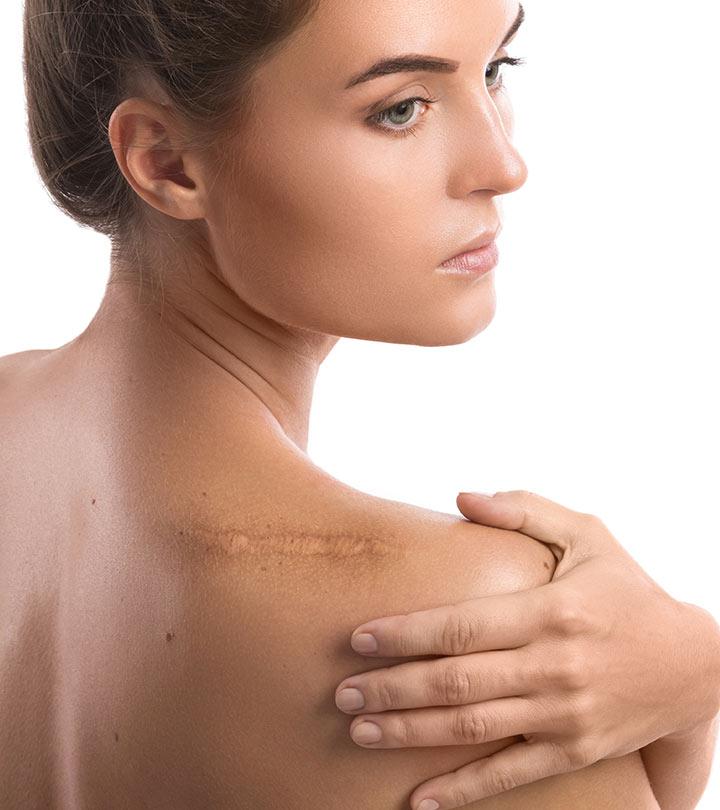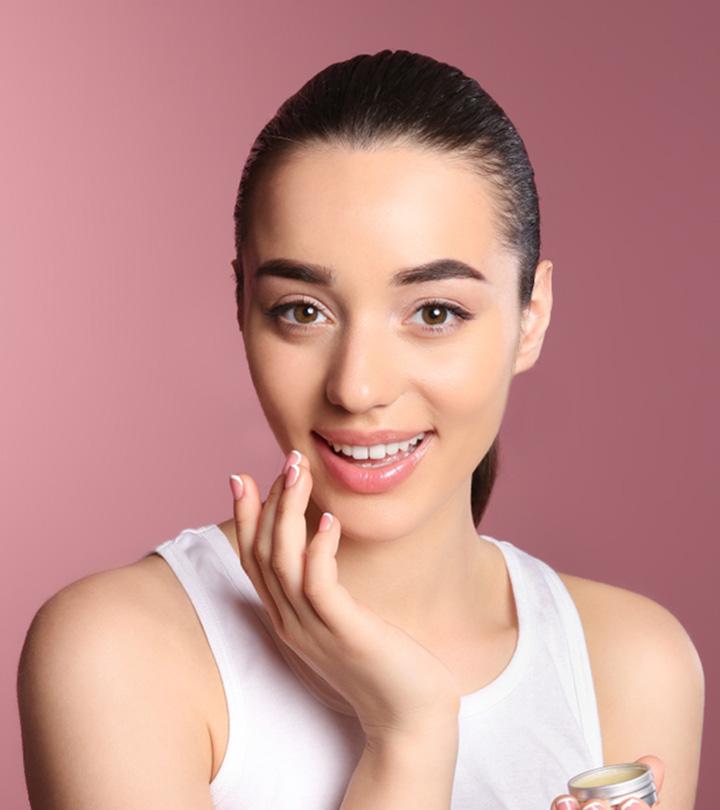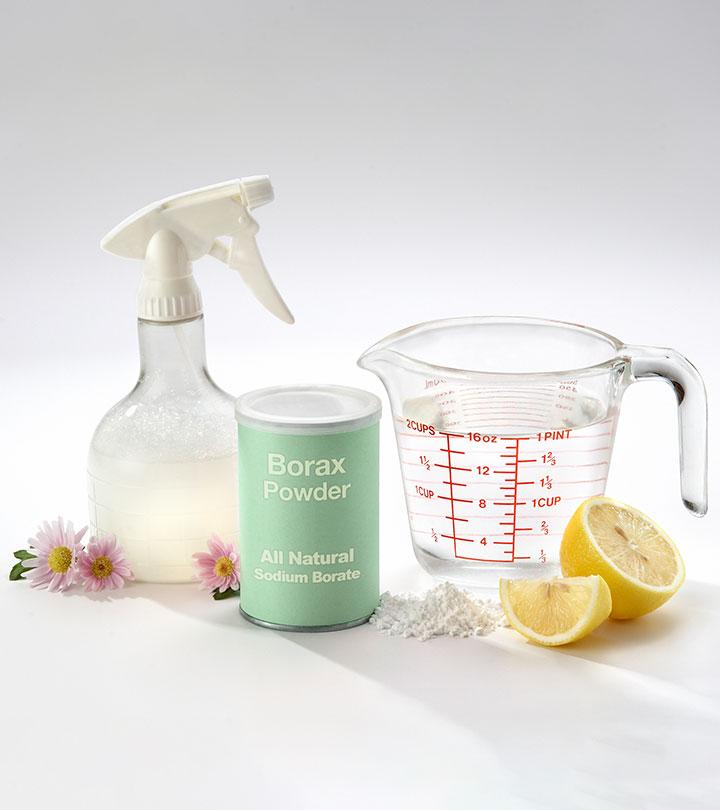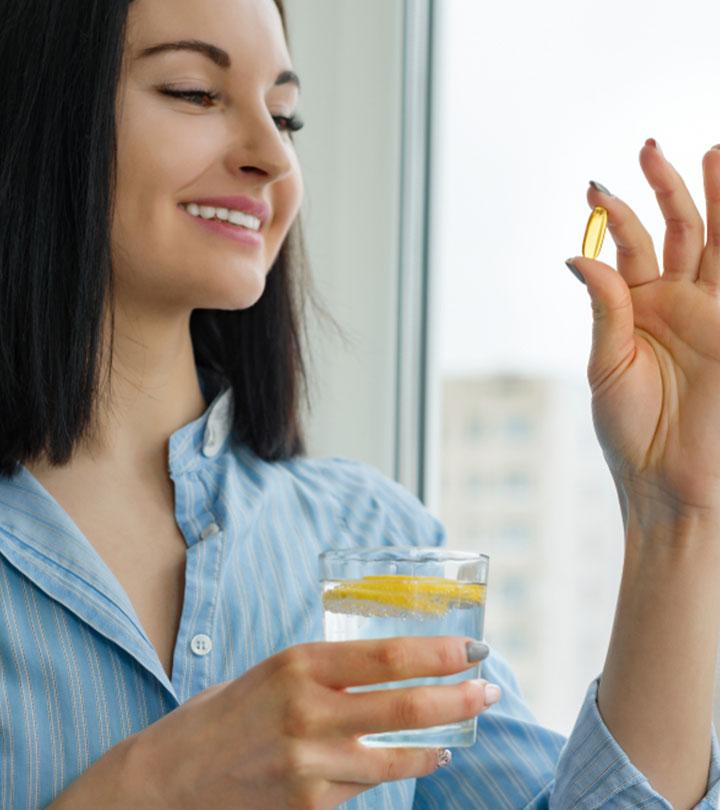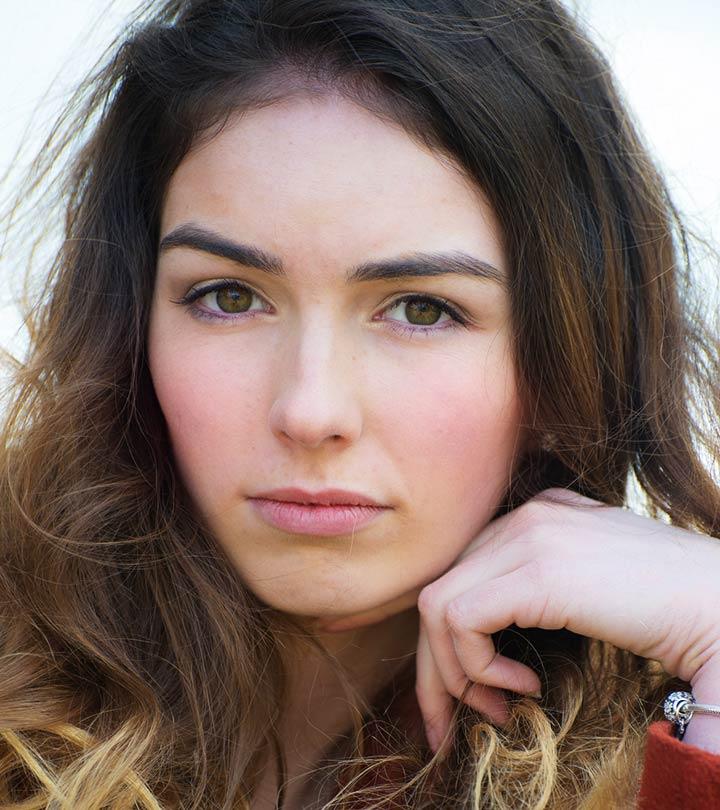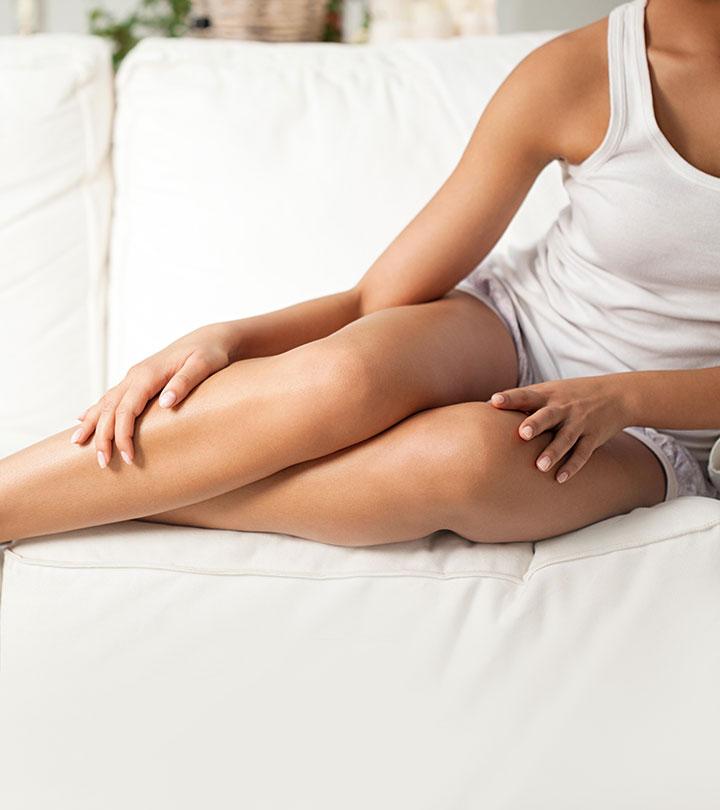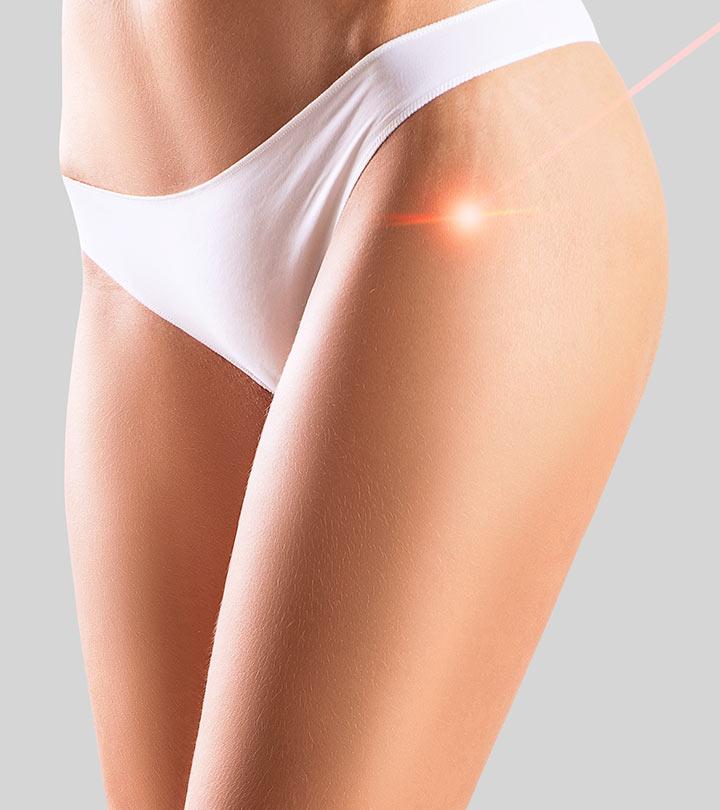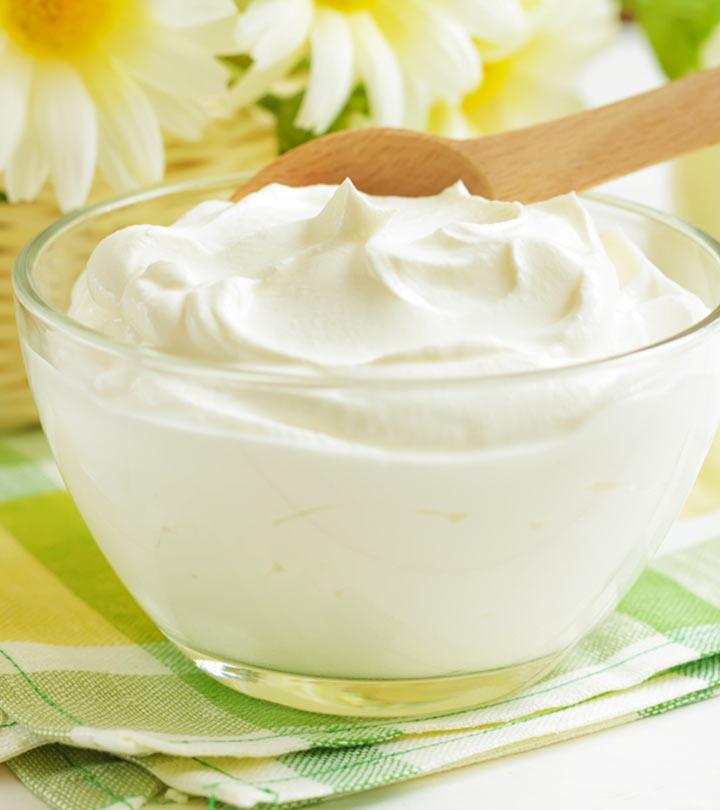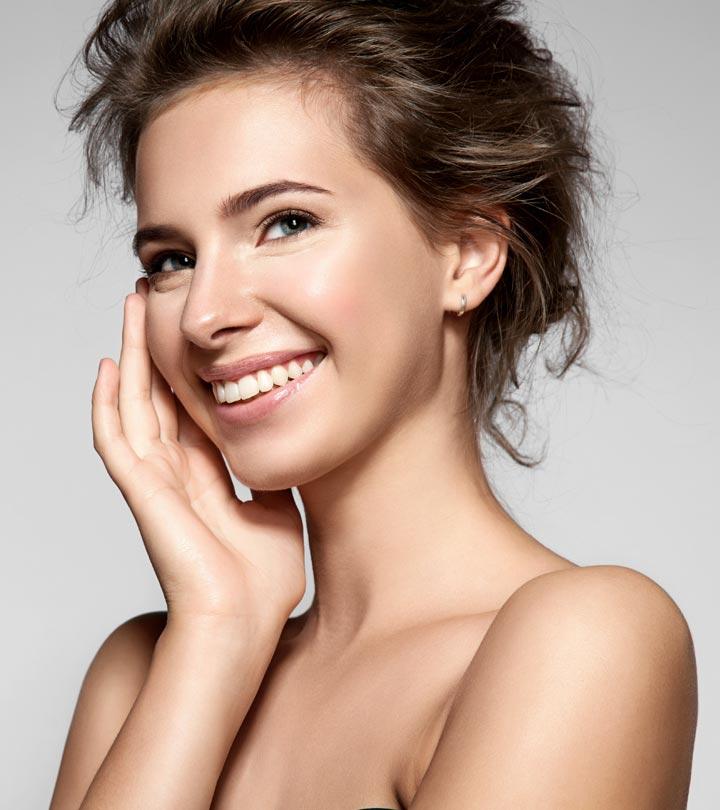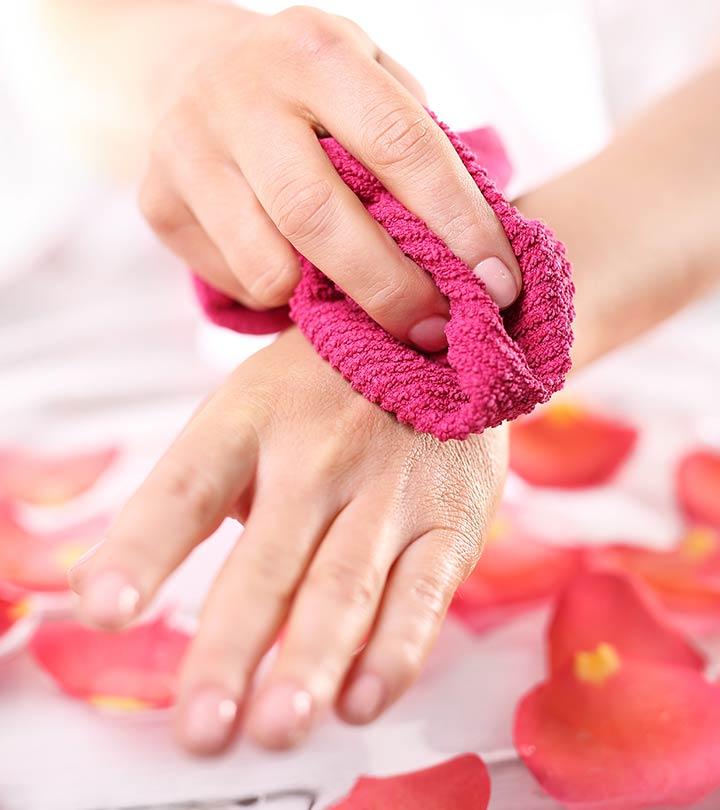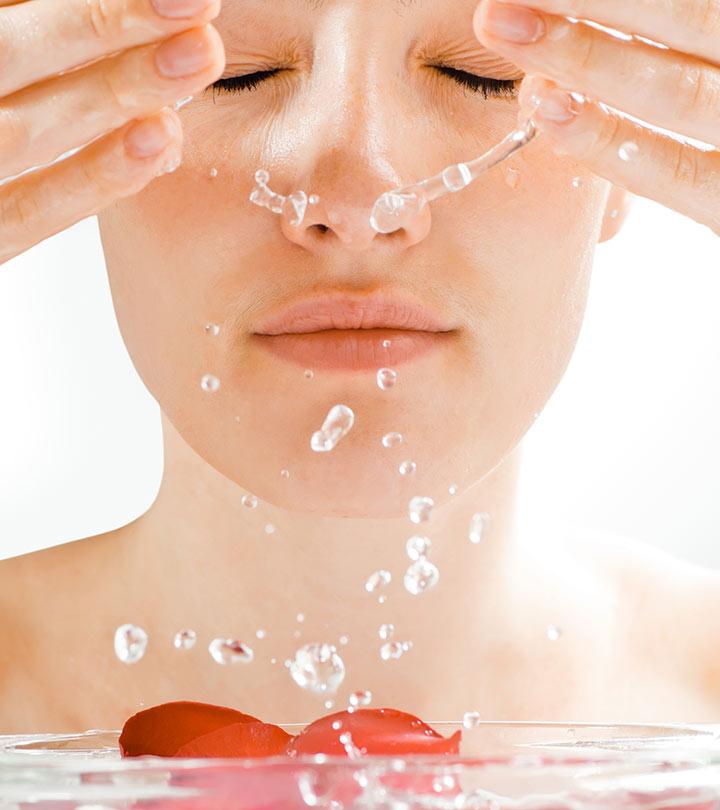What Are Parabens? Are They Really Bad For Your Skin?
Learn why these compounds are used in cosmetics and how they affect your skin.
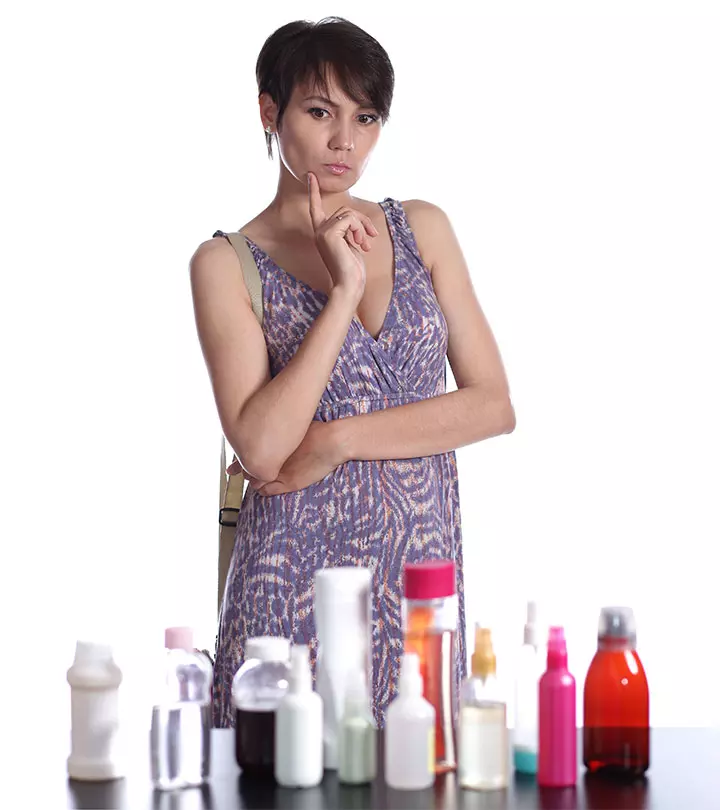
Image: Shutterstock
‘Paraben-free’ product is the new buzzword circulating in the skin care industry. But why? What are parabens? Do they harm your skin and health? Parabens are preservatives used in most cosmetic products to increase their shelf life. While preservatives are found in many perishable products, including foods and beverages, why are parabens being stressed upon? This article answers all your queries, so let us jump right in to understand what is paraben.
 Quick Tip
Quick TipIn This Article
What Are Parabens?
Parabens are a group of chemical preservatives that are widely used in cosmetic products. From commercially available moisturizers, shampoos, and serums to creams, lotions, and toothpastes – almost all cosmetic products contain parabens. Parabens prevent the growth of bacteria and molds in the product. Products containing parabens can last for months and even years.
The most commonly used types of parabens include:
- Butylparaben
- Isobutylparaben
- Propylparaben
- Methylparaben
- Ethylparaben
 Quick Tip
Quick TipYou must have seen these names on the list of ingredients in most cosmetic and skin care products. A single product can contain one or more types of parabens. Parabens are often used in combination with other preservatives to make sure that they can protect the product from a broad range of bacteria and microbes.
Since the 1950s, parabens have been extensively used in cosmetic products. Parabens are popular because they are gentle, non-sensitizing, and more effective than preservatives.
The Cosmetic Ingredient Review (CIR), in partnership with the FDA, concluded that parabens are safe to be used in cosmetics (1). Due to their excellent antimicrobial properties, parabens are widely used in cosmetics, food items, detergents, and even medicines.
Now, the question is, what exactly is the issue with parabens?
Why Are Parabens Bad For You?
Parabens are bad for you due to the following reasons:
- Researchers found that parabens get easily absorbed by your skin, and they stay in your body tissues and fluids (2).
- Researchers also detected parabens in breast milk, serum, urine, and seminal fluid (3).
- Parabens were also detected in the breast tissues of patients with breast cancer (4). One hypothesis links the increased incidence of breast cancer in the upper lateral breast area with the use of underarm deodorant (containing parabens).
- Parabens are considered as xenoestrogens. In other words, these chemicals can mimic the hormone estrogeni Women's sex hormones that play a key role in the growth and maintenance of their reproductive system and secondary sexual traits. in your body. Parabens bind the estrogen receptors in your body. Compared to methylparaben and ethylparaben, butylparaben and propylparaben have high estrogenic activity in the human body. This estrogenic activity may lead to breast cancer development (2).
- Parabens can elevate cellular level damage caused by UV exposure, which may even cause skin cancer (5).
- Parabens can also sensitize the skin, causing allergic reactions. A study found that ethylparaben used as an antifungal agent (5%) on human skin caused contact dermatitisi A broad term used to refer to various types of skin irritation, such as dryness, redness, itchiness, and inflammation. (6).
Due to these reasons, many cosmetic and skin care brands shifted to “paraben-free” products. However, even though these products claim that they are paraben-free, they still use preservatives. Usually, alcohol, grapefruit seed extracts, or sorbate are used as preservatives.
Hence, many regulatory bodies in different countries regulate the concentration of parabens in the products.
Regulatory Measures On The Use Of Parabens
The regulatory bodies examined the concentration of parabens and limited their percentage to the extent that would be safe for the consumers to use (within the Margin of Safety).
For instance, the European Scientific Committee on Consumer Products (SCCP) suggested that in cosmetic products, individual parabens can be used at a concentration of 0.4% and the total concentration of parabens (a mixture of multiple parabens) should be 0.8% (7).
The Cosmetic Ingredient Review (CIR) also recommended the same concentration as SCCP for products sold in the USA.
Denmark has banned the use of parabens, especially propyl paraben, in cosmetic and personal care products for children under the age of 3 (8).
It seems that our fears and concerns regarding parabens are valid. However, finding paraben-free cosmetics and skincare products is not difficult. Here are a few paraben-free products you can try.
Is it possible to avoid parabens? Yes, but only to a certain extent. It is practically impossible to ditch every product that contains parabens. Hence, moderation is key.
If you use leave-in serums, lotions, masks, and antiperspirantsi A skincare product that blocks sweat glands and helps lower the production of sweat and the pungent smell produced by excessive sweating. , avoid products containing parabens as these will transfer high concentration of these preservatives to your body. You can also check for other ingredients as alternatives, as provided below.
Alternatives To Parabens
The following paraben alternatives make suitable and safer preservatives:
- Organic Acids: Ingredients such as salicylic acid, sorbic acid, and benzoic acid are growing increasingly popular in skin care and have antimicrobial benefits (9). However, these properties are limited and may only exhibit antifungal but not antibacterial properties and changes in pH may lead to progressive loss of these effects.
- Phenoxyethanol: One of the most well-tolerated cosmetic preservatives (10). It has excellent antimicrobial scope and can effectively kill yeast, gram-negative and -positive bacteria. However, it is not as effective as an antifungal agent.
Do note that these alternatives, though safer, have their limitations and hence must be paired with other ingredients to compensate for them. Consult with your doctor to find out what is best for you.
Infographic: Ingredient Spotlight: Parabens
Check out the infographic below for complete information about parabens and find out if they are bad for your skin and health. You can learn more about – why they are used, the not-so-fun facts, how to avoid their risk, and alternatives to try. The information will help you grasp the truth about parabens and you will understand if your fears and worries about these particles are justified.

Illustration: StyleCraze Design Team
Let’s sum up the meaning of parabens. Parabens are a type of chemical preservative that is commonly used in cosmetics. Unfortunately, parabens, which are included in a wide variety of beauty products, have been linked to major health problems. Now that you know the detrimental consequences of parabens, why not shift to paraben-free products? Begin a natural beauty routine right now!
But take note that a ’paraben-free’ label does not imply that a product is chemical-free. There are still some preservatives in it. To be safe, examine the number of parabens in the products you use and try to keep it as low as possible.
Frequently Asked Questions
Do parabens cause hair loss?
No, there is currently no scientific evidence that indicates that parabens cause hair loss.
Is Vaseline paraben-free?
No, Vaseline contains parabens.
Do parabens cause wrinkles?
No, there is no evidence suggesting that parabens cause wrinkles.
Do blueberries have parabens?
Yes, parabens are derived from para-hydroxybenzoic acid, which is present in blueberries (9).
Does milk contain parabens?
Yes, dairy products may contain a high concentration of parabens (10).
Key Takeaways
- Parabens are chemical preservatives used in various cosmetic products such as shampoos, creams, and serums.
- They may increase the risk of developing breast cancer or cause serious allergies.
- The European Scientific Committee on Consumer Products and the Cosmetic Ingredients Review recommends a 0.8% total concentration of parabens in cosmetic products.
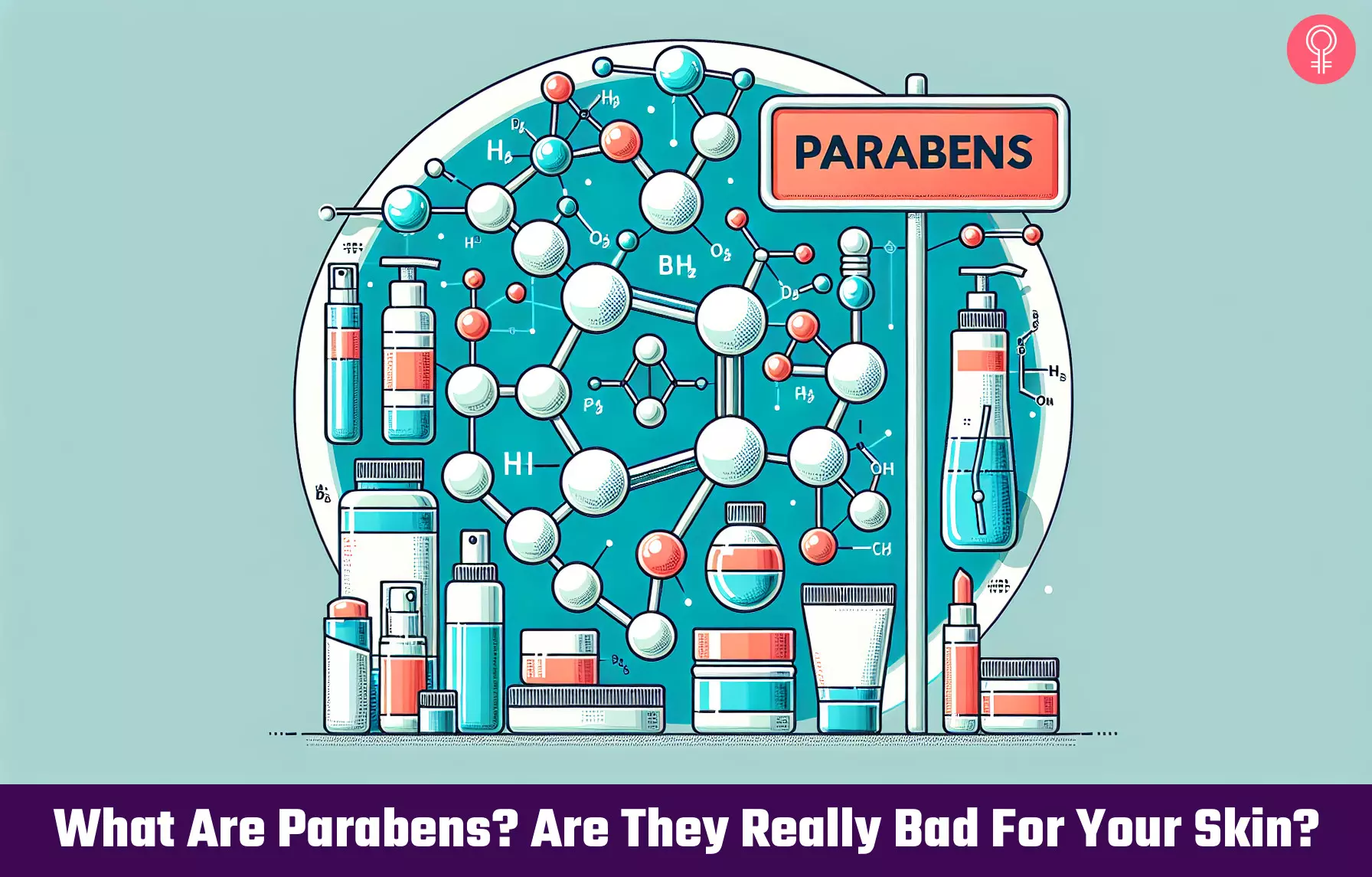
Image: Dall·E/StyleCraze Design Team
Why are companies moving away from parabens and towards paraben-free skin care products? Learn the benefits of paraben-free skin care and how it can benefit your skin from the video below.
References
Articles on StyleCraze are backed by verified information from peer-reviewed and academic research papers, reputed organizations, research institutions, and medical associations to ensure accuracy and relevance. Read our editorial policy to learn more.
- “Amended Safety Assessment of Parabens as Used in Cosmetics” Cosmetic Ingredient Review
- “The Health Controversies of Parabens” Skin Therapy Letter, US National Library of Medicine.
- “Parabens in urine, serum and seminal plasma..” Journal of Exposure Science And Environmental Epidemiology.
- “Concentrations of parabens in human breast tumours.” Journal of Applied Toxicology, US National Library of Medicine.
- “Parabens Toxicity To Skin And Other Organs” ResearchGate.
- “Diffusion of preservatives..” Journal of Cosmetic Science.
- “Opinion on the safety evaluation of parabens” SCCP, European Commission.
- “Paraben Levels in an Urban Community of Western Canada” Ministry of Environment (Denmark).
- “Cosmetics Preservation: A Review on Present Strategies” Molecules : A Journal Of Synthetic Chemistry And Natural Product Chemistry, US National Library of Medicine.
- “Safety review of phenoxyethanol when used as a preservative in cosmetics” Journal of the European Academy of Dermatology and Venereology, US National Library of Medicine.
- “Bioactive Compounds of Blueberries…” ResearchGate
- “Occurrence of and dietary exposure to parabens..” US National Library of Medicine
- “Contact Non-Allergen Of The Year: Parabens” Dermatitis
Read full bio of Patrick
Read full bio of Eshna Das
Read full bio of Shiboli Chakraborti





